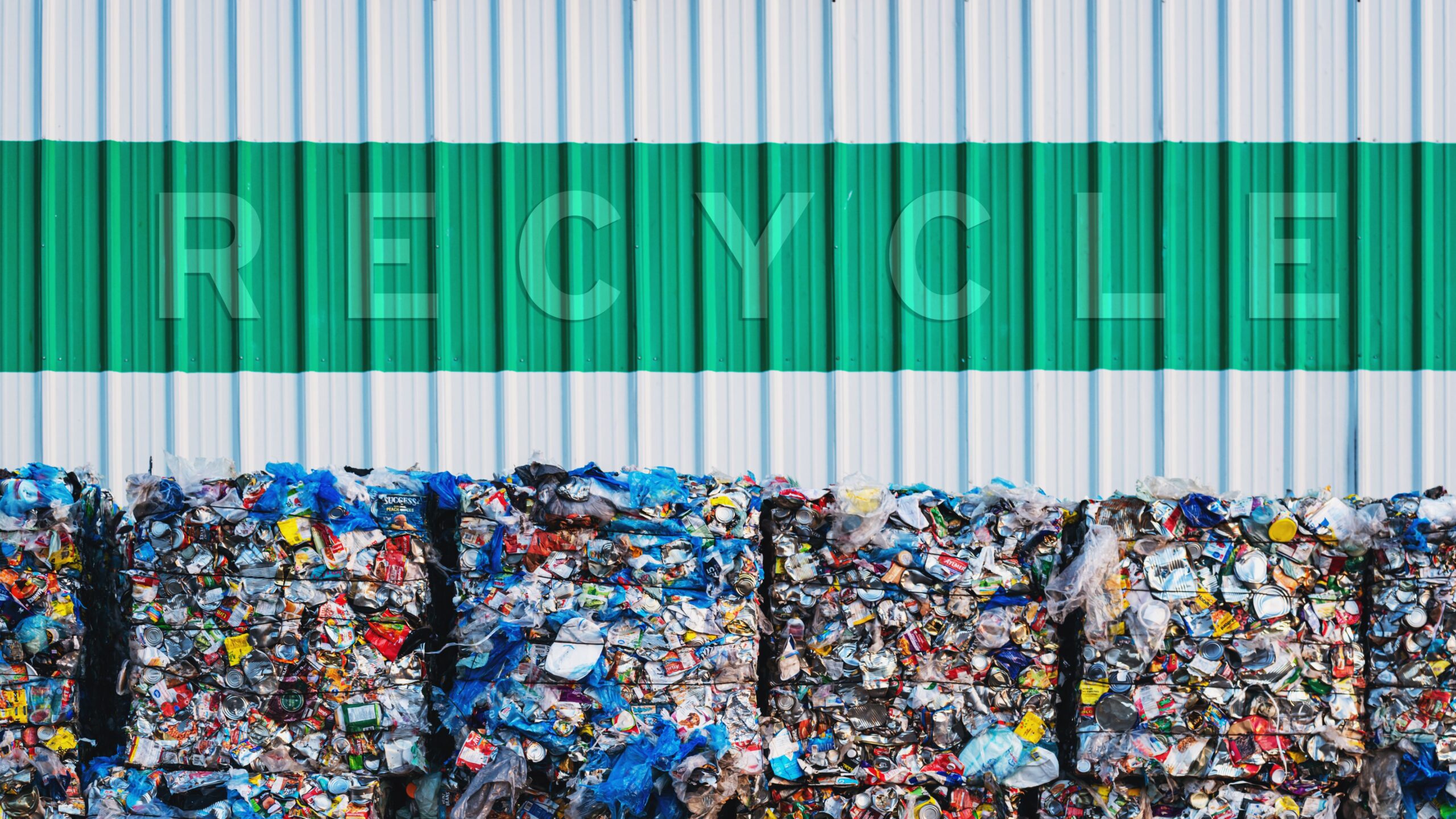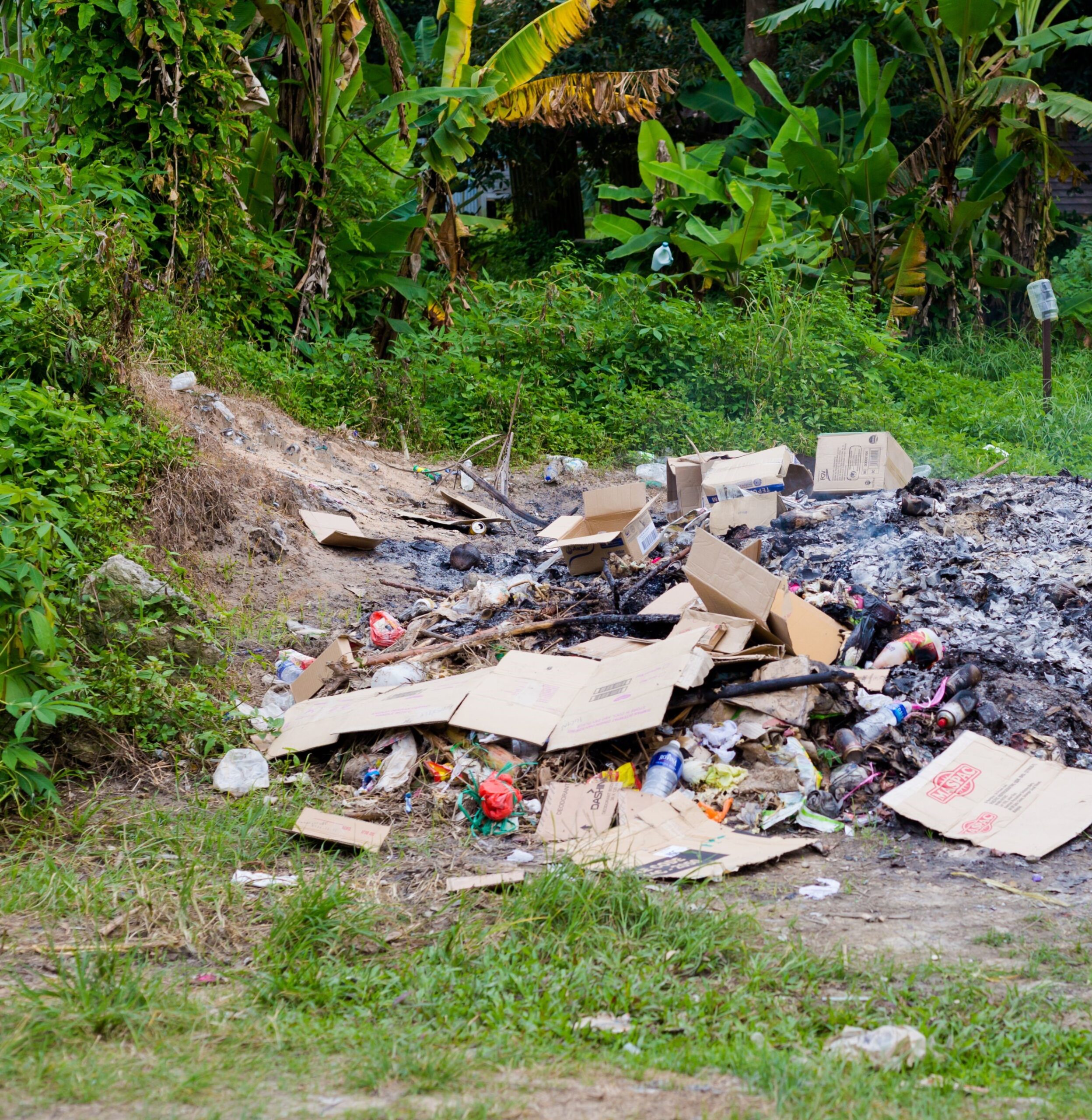28 March 2024
Confronting a burning issue: taking steps to eliminate open waste burning
International Day of Zero Waste, observed on March 30th, highlights the importance of changing our consumption and production behaviours towards sustainable waste management practices. This day sheds light on the critical environmental challenges stemming from current waste production patterns.



We are currently producing 2 billion tonnes of waste globally and high urbanisation rates are contributing to an increased production of waste. African cities, which are expected to experience the highest urbanisation rates, are further trapped in a waste cycle where increased waste production is not adequately managed.
It is also projected that at the current waste production rates, Africa will produce
244 million tonnes
of waste annually
by 2025.
Poor waste management significantly degrades both environmental and human health, affecting urban communities’ quality of life. It leads to challenges such as air pollution, clogged stormwater drains, and growing greenhouse gas emissions. Many of these challenges are compounded in African cities where resource and financial constraints are some of the main barriers to addressing this worsening challenge.

The lack of waste management services and infrastructure further entrenches unsustainable waste disposal practices. One of these unsustainable practices is open waste burning which negatively impacts the environment, human health and the economy. Waste reclaimers are directly exposed to smoke when extracting valuable materials from waste, and a significant portion of valuable recyclables are completely removed from the economy through burning. The urgency to eliminate open burning is here, and we cannot afford to underestimate its impact!
This practice contributes
11% of global black carbon emissions
and an additional
29% of fine particulate matter
to air pollution.
Waste reclaimers are directly exposed to smoke when extracting valuable materials from waste, and a significant portion of valuable recyclables are completely removed from the economy through burning. The urgency to eliminate open burning is here, and we cannot afford to underestimate its impact!
To address the challenge of open waste burning, we need to change how we manage waste production and discourage unsustainable waste management practises. Local and regional governments can take steps towards creating an enabling environment for sustainable waste management practices. The following three approaches are highlighted as a starting point to making changes in waste management which support open waste burning elimination goals:
1
Improving waste management infrastructure: One of the main contributors to the open burning of waste is the lack of adequate waste collection services, which are often lacking in low-income and informal settlements. Despite the challenges that local governments face in providing adequate infrastructure, it is essential to improve living conditions and environmental health. We need to align infrastructure provision with zero-waste and circular economy goals. This can include following sustainable public procurement principles for waste collection infrastructure or partnering with waste reclaimers who also sort waste for recycling. Not only does this provide a practical alternative to the open burning of waste, it also provides the basic infrastructure needed for sustainable waste management.
2
Adopting a circular economy approach: Addressing the challenge of open burning requires innovation in all aspects of material extraction, production and circulation. The circular economy has emerged as an approach which discourages waste production by encouraging regenerative solutions, innovative material use, efficiency in production systems, and keeping existing materials in circulation for as long as possible. In a circular world, the idea of waste is eliminated and value is attributed to all materials. Several zero-waste and circular economy solutions are emerging which reduce waste circulation. They phase out waste by providing an end-of-life plan for products and incorporating modularity. Through collaboration with a range of stakeholders, local governments can lead a circular economy transition. Some practical examples include the ongoing development of an international legally binding instrument on plastic pollution which aims to redefine the lifecycle of plastics towards ending plastic pollution; encouraging sustainable public procurement processes for the purchasing and repair of infrastructure; and applying extended producer responsibility (EPR) legislation which requires new products entering the market to have an end-of-use pipeline.
3
Behaviour change: Open waste burning often takes place at the household level, making awareness-raising and behaviour change a foundational starting point for transforming waste management. Local governments can prioritise knowledge sharing about the dangers of burning waste, and share more sustainable alternatives to waste disposal. Therefore, before applying any technology and infrastructure solutions we need to shift our mindsets towards more sustainable practices that value waste. Changing the behaviour of communities on an individual level offers the opportunity to directly address the reasons that drive people to burn waste. Many of these stem from the normalisation of burning waste due to a lack of knowledge around the impacts and actions driven by the economic value which can be derived from materials. Behaviour change extends beyond awareness raising to educating people about the effects of an activity and the opportunities that arise from making a change.
The onus of mitigating open waste burning does not lie solely in the hands of local authorities that have to provide waste services and regulate disposal practices, or in the hands of householders that have to change their habits. It is rather a shared responsibility among governments, private sector actors and individuals who each have critical roles to play. The African Ministerial Conference on the Environment (AMCEN) has set a goal to eliminate the open burning of waste by 2050 – with far-reaching benefits beyond stopping this practice – helping to reduce waste production towards a zero-waste society.


